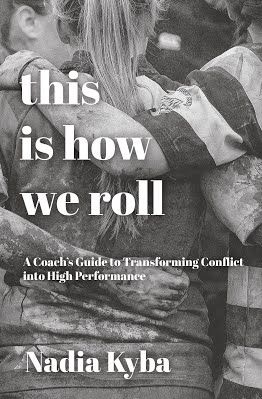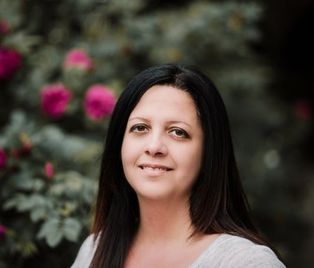
EXCERPT
Five years ago, I was out for a walk and bumped into my friend Dave, who was the president of a local hockey association at the time. Easygoing and positive, with a quick smile and a certain joie de vivre, Dave is well known and well liked. He did an enormous amount of volunteer work—he was a real upstanding member of the community. I knew him as the father of one of my daughter’s classmates, as well as through hockey, as my other daughter had been playing on a team in the association of which he was president. The day I bumped into him, he looked like he had the weight of the world on his shoulders. He could barely muster a smile.
When he looked at me, I saw a lightbulb go off for him. Looking back, I think he must have remembered in that moment that I was a social worker. He knew that I had recently started training on managing conflict through communication and mediation. When I asked how hockey was going, he said he had had a really tough season full of all kinds of problems with a few of the teams in the association. Issues with one team in particular had been taking up a lot of his time, and he was having trouble getting on top of the problems. “There are lots of dynamics,” he explained. Some parents believed some players were bullying the others, and many felt the parent coaches were not doing enough to address the problem. The coaches saw the problem differently. As president, he had tried his best to sort through what was happening by sending emails, holding team and parent meetings, meeting with the individuals involved and meeting with the board. He had collaborated with the vice president to strategize. He was finally at a loss.
I asked him when this conflict had begun, and he said it was about two months prior. I asked him how many hours he figured he had spent attempting to mitigate it.
After a long pause, he answered: “Including the other board members assisting in finding a resolution…one hundred.” One hundred hours. And he wanted to hire me to help out.
My friend and the other board members of the association whom I got to know through working together were not incapable people. Dave was the vice president of a large company and managed 75 employees. He likely dealt with conflict every day. The other board members held similar workplace roles, as did the coaches.
I was not surprised by Dave’s situation. I was glad I ran into him when I did because I knew I could help. As a social worker, I have seen that short-term interventions from qualified helpers who offer fresh perspectives can be incredibly effective. I have also seen what is at stake if conflict is not managed well in a sports team or organization. Sport can do so much for young people, for adults and for communities, but conflict in sport brings with it a high level of emotion. There are weekly local stories about games where escalating problematic behavior on the sidelines has had parents fighting and coaches behaving in crazy, abusive ways, leaving governing boards at a loss. Dave’s scenario represented a president, coaches and players on the brink of leaving their sport because of unmanaged conflict.
What does social work have to do with sports? Everything. Think of it this way: What do you do at the end of a season and the start of another? As a coach, you probably reflect on what the heck just happened and look ahead to consider improvements for next year. When you do this, you are unknowingly turning to your inner social worker…really, you are! Take a look at this definition:
Social work is concerned with helping individuals and groups enhance their individual and collective well-being. It helps people develop their skills and their abilities to use their own resources and those of their broader community to resolve problems.1
Does this sound like the work you do as a coach? It does to me. I have seen coaches like you use the social work skills described above, every day. As a coach, refining these skills will make your life easier and improve your team’s performance.
By thinking like a social worker, your concern will turn to team interpersonal development which, when strengthened, will improve performance. If this sounds like a bunch of fancy words that do not make sense yet, don’t worry. We are going to get into detail in the book. For now, all you need to know is that many make the mistake of focusing their coaching style primarily on skill development and strategy—both of which are important, but they are not enough on their own. For your team to do well, consistently, you need to know how to efficiently fix personal clashes when they come up.
Willie Desjardins, head coach of the L.A. Kings hockey team, Team Canada 2018 Olympic coach and former head coach of the Vancouver Canucks, holds a Master of Social Work degree. I remember watching the Canucks under his leadership and paying close attention to the interactions between the players. As a social worker myself, I was curious to see how he used the skills he had acquired through his academic and professional training to manage the relationships between the athletes on his team. I wanted to know how he developed a cohesive, successful team in a highly competitive sports environment. We know that sports are about much more than competition. Relationships and human interaction—the very values that social work concerns itself with—are fundamental to all sports.


















